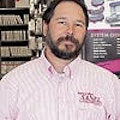At one time I worked at the heavy-duty truck counter of our main store. Aftermarket truck parts can be an intimidating market to break into due to the nature of how components are sourced for the average American big rig.
I already had some truck experience, however, nothing is quite as effective as the “total immersion” method of all truck parts all the time. The man in charge of the department told me that not a day would go by that I didn’t learn something new, no matter how long I was there. He was absolutely correct.
The problem is that not everyone has the option of choosing what he or she will work on all of the time. Counterpeople and technicians alike are at the mercy of the customers’ needs, so we have to be prepared for whatever comes our way.
The key to anyone’s success, both behind the counter and in the shop, is education. How you acquire that knowledge can have a big effect on how well you retain and use it. Since technology filters down to the aftermarket slower than it does at the OEM level, the total immersion method isn’t available to us.
If you’re not prepared by the time it reaches you, you’re in trouble. I’ve sat through quite a few technical and sales clinics over the years, and I can remember points from classes years ago better than some of the more recent ones. Jokes about age and senility aside, I realized that how much you get out of these classes is directly dependent on how well it is presented to you.
Attending any kind of training can be a big investment for the shop owner or technician. Time away from the shop is time that can’t be billed, and if you’re a shop owner sending an employee, this is a double hit to your wallet.
Even if the class is held after normal working hours, it is still an investment of the attendee’s free time. If the person presenting the class doesn’t do it in a way that draws people in and holds their attention, it is a waste of everyone’s time and money.
If the subject matter isn’t presented in a real world context that the attendees can relate to, it’s nothing more than a lecture. I remember sitting through one class some years ago where the instructor droned on, and at times, seemed to be talking more to himself than anyone else in the room. After about 30 minutes or so you could tell by the glassy-eyed stares that nobody was getting much out of it.
In his defense, he was a sales representative and not an instructor, and to his credit, he stayed on the subject of instructing rather than selling. An evening presented as a learning experience that turns into a sales pitch can do more harm than good to your credibility and sales.
Education is a valuable added service that both the manufacturers and distributors should be providing. We recently held a truck air system and foundation brake clinic presented by one of our people and a supplier’s factory rep. Most of the subject matter was not new, and most of the attendees had many years of experience, but everyone I’ve talked to got something new out of it.
To me, that says it was a quality presentation, and just like selling parts, the better quality product will always provide better returns.
About the Author
